Reviving and Reinspiring an Exhausted Workforce for Growth
As we begin to see a possible end to the global pandemic, the next challenge facing healthcare leaders will be reviving and reinspiring an exhausted workforce to meet growing market demand. I recently spoke with Dr. Emilie Bartolucci, Ed.D. in organizational leadership and research focused on caregiver experience, and executive director of Private Duty Health Care at NAHC; and Transcend’s Emily Zarecki about building a future-ready organization in the wake of the pandemic.
Stephanie: What’s the state of the workforce right now? And, how’s the relationship between employers and employees?
Dr. Bartolucci: There’s no doubt that this is a testing moment for our industry. How providers engage and communicate with their employees during this season and from here on will have long-term repercussions.

With few exceptions, employers want to do the right thing, but they don’t always know how to do that when they’ve been under pressure for so long without the right tools and resources.
Emily: Employers definitely feel the difficulty of this. Early on, their focus was on getting PPE and protocols in place. They established video calls and daily briefings and these actions brought teams together. Opportunities for camaraderie were gone and these communication actions filled the void. Leaders need to keep the intensity up while evolving the message to meet the bigger needs of the future.
Stephanie: These actions keep people connected and give them a sense of personal connection and control. Our research before the pandemic showed growing appetite for a sense of control and choice. Those feelings have only intensified during the pandemic. The best employers are using transparency and honesty to guide their teams to a space where they can create control and have impact. Have you seen those motivations at play in your work?
Dr. Bartolucci: I always use the idea of a sense of belonging. People often use that word to imply being part of a family or a friend group, but belonging in professional settings is so much more than that. It’s a feeling that you have a place and purpose among that group you’re with. You are part of the group and you are a contributor toward the group’s shared purpose. Belonging is an inherent human need that can be developed in teams.

Stephanie: Mutual respect is essential to cultivating belonging. If I don’t respect you and you don’t respect me, we can’t create the sense of belonging needed to unlock our full potential together. Speaking of respect, we seem to be experiencing an all-time high in respect in the care industry. Do you think that level of respect will remain after the pandemic?
Dr. Bartolucci: I think while there is a lot of respect due to the lens the pandemic has put on caregivers, many home-based caregivers don’t feel as respected. At NAHC, we had to fight so hard to get homecare workers recognized as essential employees at the federal level, but that’s not the case in every state. We have care workers going to get vaccines and they’re being looked at suspiciously. Why do you get a vaccine before my 90-year-old mother?
There is a fundamental missing element of respect for these folks working these critical roles. Once the pandemic is gone, that lens is gone and people are going to start to forget these things.
Employers that do this well work really hard to cultivate respect, value and belonging each and every day and in each and every interaction. They show that value in pay and benefits. There’s a lot more we can do. I don’t think we’re there where everyone is doing this well. We need to be that much more vigilant and that much more methodical to cultivate respect. Respect is fickle. It can be lost much faster than it is gained, so you have to work at it all the time.
Emily: And respect, whether it’s from the family or between the employee and employer, can be lost quickly. Once that happens, it takes so much time to build it back up. Many employers got some great things going in their teams during COVID, but it has to be sustained. That takes discipline and dedication. Those efforts are the intangibles that we don’t really think about. We put so much focus on pay that we miss the real reasons why people pick or stay with an employer.
Stephanie: Those intangibles, we think of them as nice to do when they really should be baked into our operating model. At Transcend, we focus on building great, future-ready senior care providers, where the brand, the culture, the values and the experience process are all cohesive. Do you think we’re reaching an inflection where there is a greater understanding of these issues and a willingness to work on them?

Dr. Bartolucci: We are at this incredible inflection point, and it’s been a long journey building here, where culture and experience are becoming more important and part of the portfolio of metrics. Ten years ago, people didn’t know about experience design as a practice. While we are at this inflection point, we’re also at this adapt or die moment. Organizations will either adapt or you won’t exist in the next few years.
Companies that will survive and thrive are a product of that interaction between your employees, who are your biggest asset, and your consumers, who have a higher expectation of how providers should work. If a company can’t figure out how to build its bench strength, help people adapt and grow, build lateral service to remove siloes, it’s not likely they’ll survive.
It’s going to become more important for organizations to create those deliberate mechanisms, but also create a culture that imprints its values on each and every employee and each and every interaction. Organizations are at that inflection point that you either do this work or you’re not going to exist because you’re not going to be able to get the employees you need, and your consumers are not going to want to buy what you’re selling because they can see that you don’t value your people.
Emily: It can be very tempting to use a Band-Aid for these challenges. Organizations end up just messing around with pay or reducing operating costs by moving certain costs out of house. This is the moment to do the hard work required to be sustainable for the long term. Get serious about being the best that they can be.
Dr. Bartolucci: This is a growing industry and it’s more consumer driven than ever. Employees are consumers, too, with choice in where they want to work. We need to be cognizant of that choice. Make sure that we don’t just say the right things, but show we’ve got their backs. They’re going to remember this. It’s a critical point.
Emily and our colleague Stan Massey will be speaking about employee engagement best practices at the virtual NAHC Winter Private Duty Leadership Summit on February 23 for a session on Turning the Tables on Turnover. I hope you’ll join them!










